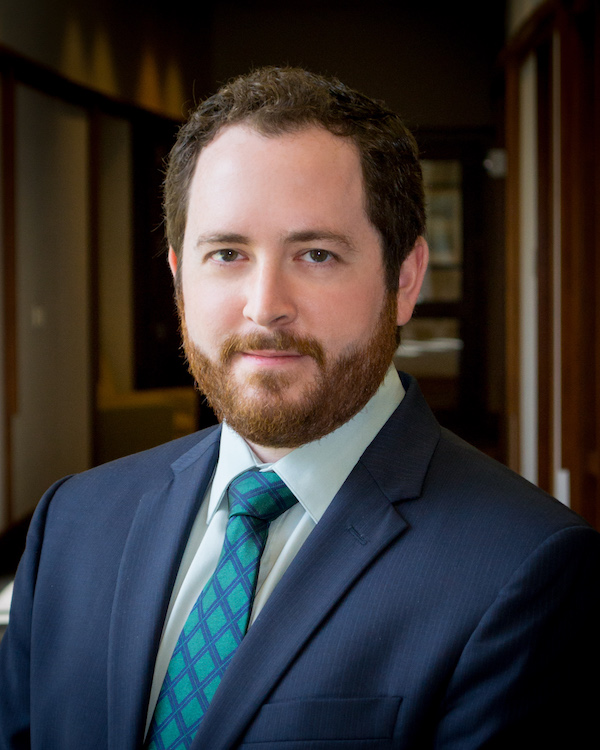The Storm After the Storm: Scam Contractors Who Prey on Those Suffering After a Natural Disaster
‘The key is to get a lawyer to look at the contract before you sign it,’ legal expert says
Media Contact: Eric M. Eckert, 254-710-1964
Follow Eric on Twitter at @EricBaylorU
Follow Baylor Media Communications on Twitter: @BaylorUMedia
WACO, Texas (Sept. 19, 2018) – Following a natural disaster or strong storm like Hurricane Florence, there is usually a second wave of potential destruction – scam artists looking to line their pockets.
“After any major weather-related incident, insurance adjusters and contractors swarm the affected area and, unfortunately, some are looking to take advantage of those in distress,” said Stephen Rispoli, L.L.M, J.D., assistant dean of student affairs and pro bono programs at Baylor Law School. As an attorney, he works with victims of insurance scams.
Rispoli said most contractors are legitimate businesspeople helping neighbors rebuild. But there are the unscrupulous ones whose practices inflict financial and emotional pain on people already suffering from storm damage.
“The primary result of these scams is financial loss,” Rispoli said. “The homeowners may pay much, much more than they should have to fix the damage, sometimes having to pay multiple contractors for the same work. Sadly, in some cases, homeowners could even lose their homes.”
In this Q&A, Rispoli shares some tips to help those reeling from storm damage identify and avoid scammers.
Q: Who are the most common victims?
A: The most common targets are those in distress following a major storm, the elderly and the disabled.
Q: How will scam artists approach a potential victim?
A: Usually, contractors will approach homeowners they know have been affected. This happens as simply as the contractor driving through neighborhoods looking for damaged homes. Let’s say, for example, they see a damaged roof with a homeowner standing outside looking at it. They’ll quickly pull over and offer to tarp the roof to prevent damage. The homeowner, already distressed by the storm and the damage to the house, agrees. Once the tarp is on, the contractor then starts asking questions about insurance coverage, which insurance company has insured the house, and helpfully offering his or her opinion on how much it will cost to fix the damage.
Unscrupulous contractors will try to take advantage of this situation by pressing the homeowner to sign a contract with them. I have even seen cases where the contractor left all the blanks in the form contract unfilled, including the work to be done and the price, saying things like, “Don’t worry about that, we’ll talk to your insurance company and get it all taken care of, just sign it.” Once the unscrupulous contractor has a signed contract, they can fill in the blanks at their leisure. At this point, they are in total control – they know how much the insurance company will pay, and they can try to squeeze the homeowner for more money by charging too much or with add-ons that may or may not be necessary.
Q: What are some of the potential losses victims can suffer?
A: Financially, victims could lose money by paying more – sometimes much more – than they should for repairs. Or, in extreme cases, they could even lose their homes.
That could happen if the homeowner signs a contract with the contractor that contains a mechanic’s or materialman’s lien provision. Under these provisions, contractors can file a lien with the county for work done on the house to ensure payment. If the homeowner does not pay the contractor the amount owed under the contract, the contractor can seek to foreclose on the house to recover the amount owed.
Q: What about dealing with the insurance company?
A: It’s important that you cooperate with your insurance company and your adjustor. Call your insurance company as soon as you can. Waiting to file a claim may make the process take longer or complicate matters. You should be responsive to their requests, but don’t be afraid to ask questions if you have them. Be sure to take photographs of any damage or evidence of the storm if it’s safe to do so.
After your initial conversation with your insurance company, the company will send an adjustor out and will give you a quote. However, after you’ve had two or three contractors come out and give you estimates, if the adjustor’s quote looks too low, don’t be afraid to ask for another adjustor to come out and give you a quote. You should feel comfortable with the process as you move forward.
Q: Is it illegal or unethical for contractors to file liens?
A: It is not necessarily unscrupulous for contractors to include a mechanic’s or materialman’s lien provision in the contract. Generally, creditors cannot foreclose on a person’s homestead in Texas. The purpose of a mechanic’s or materialman’s lien provision is to protect the contractor should the homeowner wrongfully refuse to pay for work done on a homestead. On large jobs where several thousands of dollars are at stake, the contractor may rightfully want to make sure that they can be paid for the job. Whether they are appropriate can only be decided on a case-by-case basis.
Q: Are there red flags people should look for when presented with a contract?
A: Do not sign a contract you are not comfortable with. There are several red flags to look for: pressure to sign a contract, giving you little time to think about it, refusing to let you take the contract to a lawyer, and asking to collect the money directly from the insurance company or pressuring you to give them the check from the insurance company.
Q: How do people know if the repair costs presented to them are too high?
A: Be sure to get written estimates from several (at least three) contractors. By getting three estimates, you’ll have a better idea of how much the repair should cost. Any estimates that are way lower or way higher than the others are good indications that something is off. If that happens, get another estimate from a different contractor. Do not be afraid to ask contractors to come give you an estimate. It is a normal part of their job, and good contractors will not mind taking the time to do it.
Q: How do you know if a contractor is legitimate?
A: Do your homework on the contractors. Ask for references and call them, and check with the Better Business Bureau. Be cautious when dealing with contractors who are not from your area, and extra cautious if they are not from Texas or will not provide local references.
Q: Contractors often ask for upfront money, don’t they?
A: Once the contract is signed and the work begins, be sure to control the money. The contractor will likely ask you to pay some of the contract up front so that they can begin to purchase materials and hire the crew to work on your repair. Try to pay as little as possible. You do not want to give them the bulk of the money up front, because then the incentive to get the job done quickly is diminished. After the job starts, ask the contractor to give you, in writing, progress reports when they ask for more money. Do not pay more than the progress report. Do not give the contractor the final payment until all the work is done.
Q: If someone feels they’ve been taken advantage of, are there legal steps they can take?
A: The key here is to get a lawyer to look at the contract before you sign it. Once the contract is signed, it will be difficult for a lawyer to undo the damage. If the contractor is trying to foreclose on the home using a mechanic’s or materialman’s lien, a lawyer may be able to save your home. There are several Texas Constitutional and statutory protections for homeowners. If the contractor did not strictly follow the steps necessary to properly attach a lien, a lawyer may be able to keep the foreclosure from happening.
ABOUT BAYLOR UNIVERSITY
Baylor University is a private Christian University and a nationally ranked research institution. The University provides a vibrant campus community for more than 17,000 students by blending interdisciplinary research with an international reputation for educational excellence and a faculty commitment to teaching and scholarship. Chartered in 1845 by the Republic of Texas through the efforts of Baptist pioneers, Baylor is the oldest continually operating University in Texas. Located in Waco, Baylor welcomes students from all 50 states and more than 80 countries to study a broad range of degrees among its 12 nationally recognized academic divisions.
ABOUT BAYLOR LAW SCHOOL
Established in 1857, Baylor Law was one of the first law schools in Texas and one of the first west of the Mississippi River. Today, the school has more than 7,400 living alumni. It is accredited by the American Bar Association and is a member of the Association of American Law Schools. Baylor Law has a record of producing outstanding lawyers, many of whom decide upon a career in public service. Baylor Law boasts two governors, members or former members of the U.S. House of Representatives and the U.S. Senate, two former directors of the FBI, U.S. ambassadors, federal judges, justices of the Texas Supreme Court and members of the Texas Legislature among its notable alumni. In its law specialties rankings, U.S. News & World Report ranked Baylor Law’s trial advocacy program as one of the top 5 in the nation. Baylor Law School also is ranked No. 50 in the magazine’s 2019 edition of “America’s Best Graduate Schools.” The National Jurist ranks Baylor Law as one of the “Best School for Practical Training” and No. 4 in the nation in its most recent “Best Law School Facilities” listing. The Business Insider places Baylor Law among the top 50 law schools in the nation. Baylor Law School received the 2015 American Bar Association Pro Bono Publico Award, making it only the third law school in the nation to be honored with the award since the award’s inception in 1984. Learn more at baylor.edu/law.

